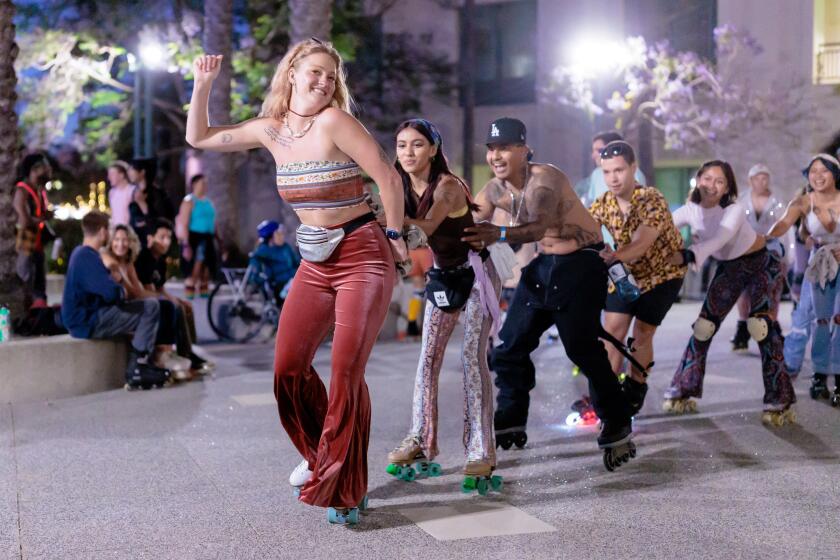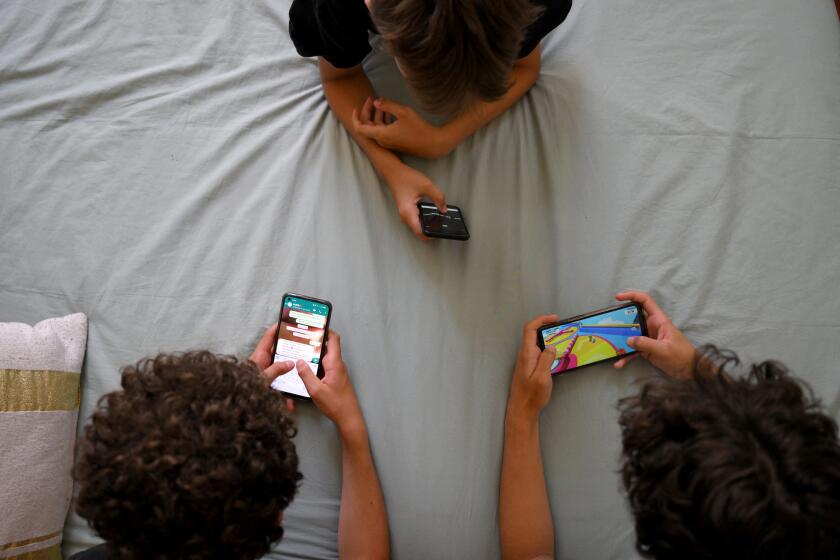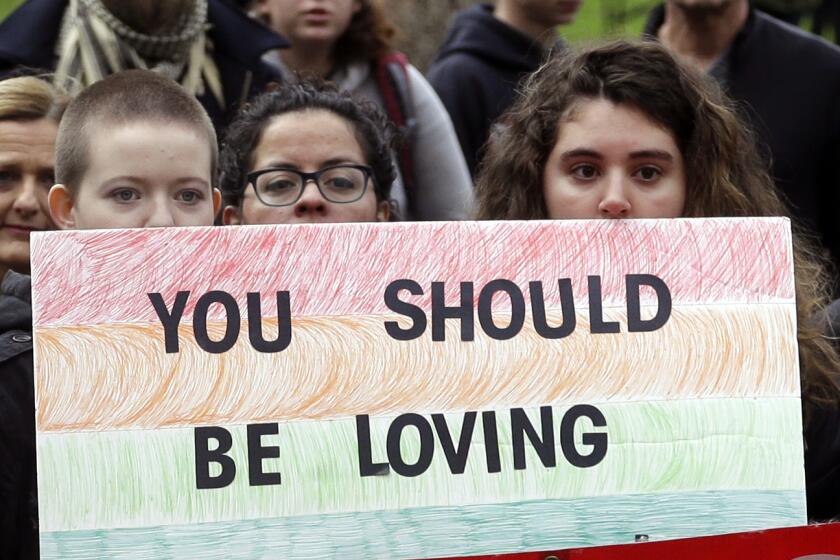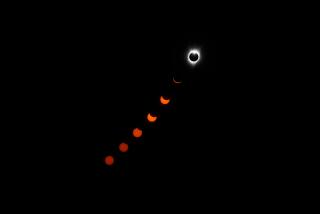Column: I stayed off social media for just one week and rediscovered awe
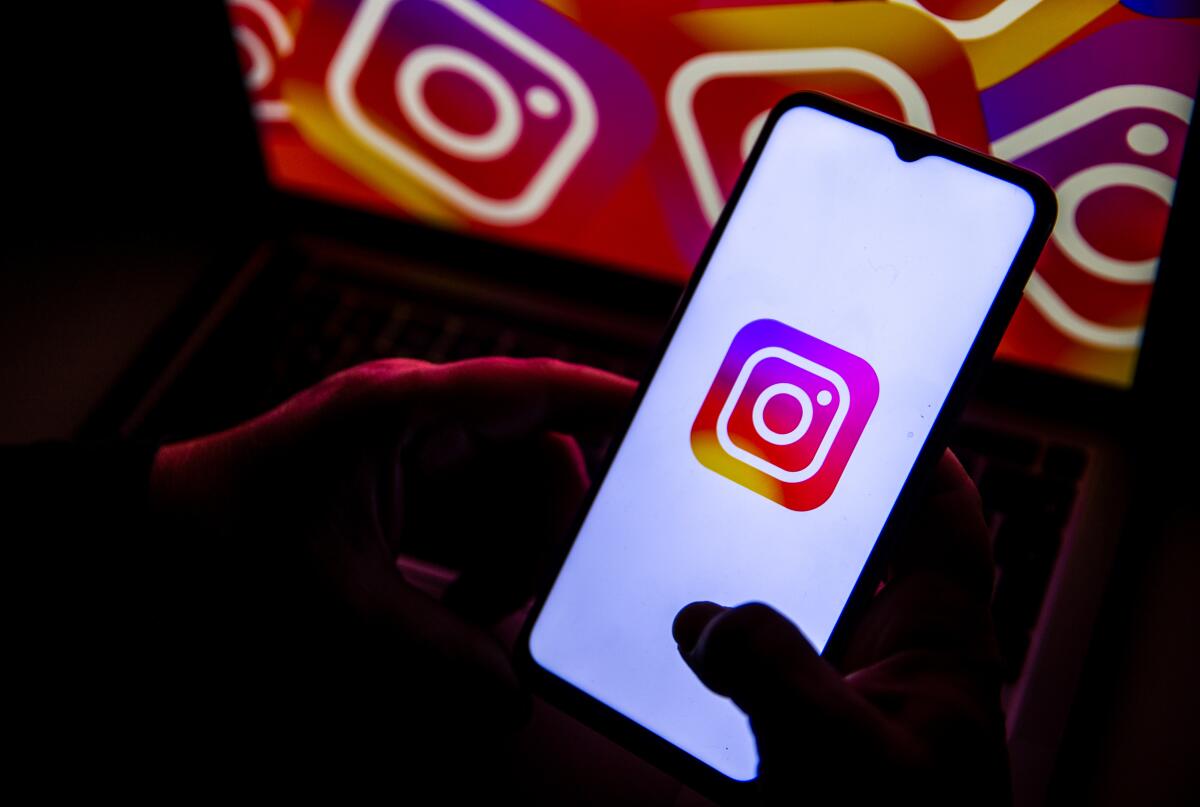
- Share via
When my iPhone stopped working earlier this month, I spent an hour trying to fix it before I gave up. I scheduled the earliest-available appointment at an Apple store the next morning and resigned myself to a day without my device.
Opinion Columnist
Jean Guerrero
Jean Guerrero is the author, most recently, of “Hatemonger: Stephen Miller, Donald Trump and the White Nationalist Agenda.”
As I drove around to various errands, I awoke to details of the real world that I’d long ago stopped noticing: the faces of strangers in cars behind me at traffic stops, my steering wheel’s leather, the ethereal whiteness of ordinary clouds.
Without social media to occupy me at all times, my mind went empty: gloriously empty, with space for nature and new ideas. It was exhilarating. Suddenly, anything seemed possible. Eager to prolong the feeling after I got a new phone, I decided to stay off social media during an upcoming vacation.
I’d be seeing friends and going to training events for Brazilian Zouk dancing, my new hobby. My social media addiction includes posting videos of my real-world activities, including dancing, so I knew it would be difficult for me.
We all need to be expanding our social circles. What better time than summer to play outside and make some new friends?
I often tell myself that my posting is voluntary, with a worthy purpose: to inspire people to exit the Metaverse and bond with others. But the truth is, I’ve raced home from in-person experiences to post about them, pulse racing like a junkie’s. How much of my posting is volitional and how much is compulsory labor for Big Tech, which gives me dopamine hits in exchange?
I had to spend time off the apps to find out. Instagram would be the hardest. TikTok had always felt overstimulating to me, and I rarely used Twitter now that Elon Musk had turned it into X, even though I spent years building a following there. Since reducing my Twitter use, I’ve noticed a shift in my thinking: away from binaries. How would a complete social media cleanse change me?
The first few days were easy. I arrived at the Brazilian Zouk dance retreat, which took over a wildlife training school in the green slopes near Nevada City. Absorbed in dance classes and meeting new people, I didn’t miss social media at all.
The older children are when they get their first smartphone, the better their mental health later in life. That’s little consolation to teens feeling left out when all their friends are connected.
In my down time, I re-read Katherine May’s “Enchantment: Awakening Wonder in an Anxious Age,” about the author’s quest to rediscover her childhood sense of awe, which had less to do with beauty than with “a deep engagement with the world around me, the particular quality of attention that accompanies close attention.”
I had no memory of finishing the book, which I read earlier this year. But when I reached the final chapters, I saw my own pen markings. It was ironic: I’d read a book about attention while so distracted that I’d forgotten most of the experience.
The next morning, eating breakfast with my classmates on a sun-dappled patio, I noticed a large praying mantis on the ground, its body the yellow-green of a ripe lime. Beside me, a friend was posting videos of the previous night of dancing to Instagram. If I weren’t on a digital detox, I realized, I’d be doing the same thing.
If Gen Z Republicans are attacked as bigots, they’re more likely to double down on harmful beliefs, including the idea that they’re victims of oppression.
The insect was crawling toward the dining hall door, where it could be crushed. I knelt down to move it to safety, charmed by its resemblance to foliage and its worshipful pose. I hadn’t seen one in years. I wondered how many small wonders I’d missed while staring at my phone. “How do we worship now?” May asks in her book, “How do we get past the blunt knowing of our disenchanted age and tap back into the magic that we used to perceive everywhere?”
The praying mantis offered an answer. Simply noticing was enough. Attention to nuance and in-between spaces could make existence sacred.
I sat down again and my friend told me that he’d stayed up all night dancing and seen the sunrise. He pulled up Instagram to show me a video he had posted of the sunrise, ignoring my comments about my social media cleanse. The sky’s pink hues were beautiful, and his desire to share beauty is a good thing.
Often for me, though, the impulse to share joy online has come at the expense of presence in the moment. But social media can also open doors to new experiences; it was a friend’s videos of Brazilian Zouk dancing on Instagram that sparked my interest in this activity, which is all about inhabiting our bodies.
Later, when a friend texted me a video he’d captured of one of my best dances, I texted it to my abuelita, whose reply was more real than hundreds of Instagram likes: “It looks perfect precious,” she texted in Spanish. “I love watching that Zouk dance.” I didn’t need a large audience — one person was enough.
Just as I was marveling at how painless it was to stay off social media, I relapsed. One second, I was responding to a friend’s text. The next moment I was staring at a video of a cute French bulldog. Without realizing it, I’d opened Instagram. I closed it and tried to recall how I ended up there, but I’d done it on autopilot. I resolved to remove the app from my home screen to make it harder to access.
The rest of my social media break was easy. I spent time with old friends and their two small sons who lived in a nearby forest, where we gathered mushrooms and floated in a lake. Later, I met friends in San Francisco and joined in more dance sessions.
A few times, I felt social media’s pull. But each time, I resisted, remembering the lesson of the praying mantis. Now the challenge is keeping up my resistance in normal life.
More to Read
A cure for the common opinion
Get thought-provoking perspectives with our weekly newsletter.
You may occasionally receive promotional content from the Los Angeles Times.

